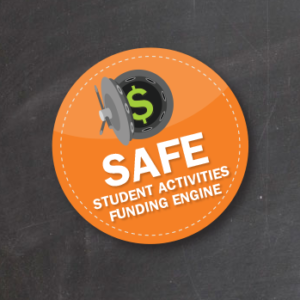
If you are an upperclassman, at this point in the semester, you’ve probably met with your adviser, decided on your research topic, and come up with a game plan for beginning your independent work. That said, you may still need to figure out one final detail: getting research funding. Not only does the Student Activities Funding Engine (SAFE) now have several applications open for Winter and Intersession research, but applications for spring funding will also be opening relatively soon. Even if you aren’t in the midst of writing a thesis, SAFE also lists opportunities for students who need funding for internships, summer study abroad programs, and independent projects. If this is your first time applying for funding and you’re worried about writing a convincing proposal, you’re not the only one. That’s why PCUR attended the Writing Program’s “Crafting Your Research Proposal” workshop to bring back some pointers. If you weren’t able to make it, here are the fundamental guiding questions to help make your research statement as clear and effective as possible:
Why this project?
The most important question to consider for your proposal is what it is that makes your research significant. Another way to think about this may be to ask yourself, “what makes it shiny?” Not only do you want your pitch to be recognizable as a worthwhile venture, but you also want to discuss the aspects of it that shine a new light on your subject matter. For example, if you’re analyzing how minorities are represented in films, you may want to bring up what’s special about the films you’ve selected, what’s different about your analytical lens, or what new and noteworthy insights you predict that you’ll find. You may also want to communicate the motive for your research and identify the gaps it will fill in people’s general understanding of the topic.
Why this applicant?
After explaining what your project is about, it’s time to show that you’re the right person for the job. In other words, what makes you passionate and committed to your project and capable of accomplishing your research goals? Is there a personal experience driving your curiosity? Do you have an inside connection to a private group or organization? Or maybe you’re expanding on one of your pre-existing works and you want to look at it from a different angle. Whatever the case, this is your opportunity to show that you’re motivated, well-versed on your topic, and qualified to carry out your research.
Why does this project need funding?
Next is your argument for why you need funding. Instead of simply stating that you need money for transportation and overnight stays, this would be a good section to provide a detailed description of why funding would enhance your project. For instance, if you’re researching how American history is taught internationally, you may argue that instead of just looking at international textbooks, you’d greatly benefit from sitting in on history classes in other countries where you could get a firsthand perspective on how teachers and students engage with the material. This is your opportunity to show that funding is essential to making your research the best it can be.
What are the deliverables?
Lastly, your proposal should include the logistics of your project. What will your research entail on a day-to-day basis? What steps will you need to take in order to finish your project? How would funding be used to assist you in this process? Here, giving as many details as possible will show that you have a feasible plan, and also indicate that you’ve put a lot of thought into making your research as successful as possible.
The questions outlined above are useful aids to help you write your proposal, but may vary depending on how you wish to present your plans. While most statements are 300-350 words, you should check with your department to see if they have any special requirements. If you find that you’re still worried about your statement, you can ask your adviser for tips on what aspects of your research to focus on or schedule a one-on-one meeting at the Writing Center. You can also find more information on thesis funding from the Office of Undergraduate Research. In the meantime, know that receiving funding is not about competing with your peers, but about putting your best foot forward, showcasing your ideas, and demonstrating that your research will benefit from University funding. Good luck!
–Taylor Griffith, Social Science Correspondent

